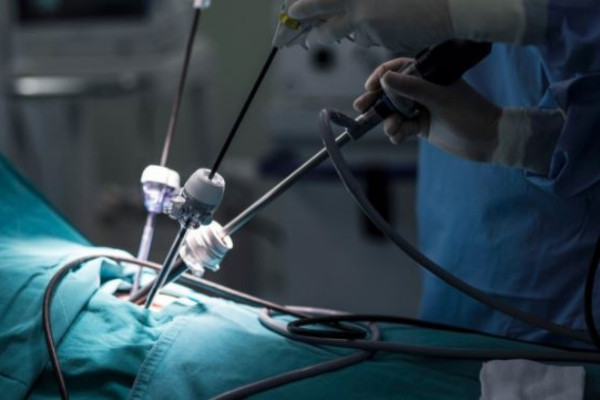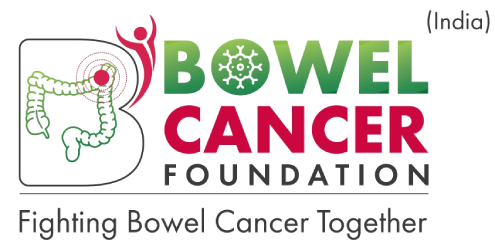- 7904139064 Call Us Now
- info@bowelcancerfoundation.org Email Us
Treatment
Bowel cancer is a serious disease that requires prompt and effective treatment to increase the chances of survival. Treatment for bowel cancer depends on the stage of the cancer, the location of the cancer in the bowel, and the overall health of the patient. Treatment options include surgery, chemotherapy, radiation therapy, and targeted therapy. Dr. Samrat Jankar is one of the best colorectal surgeon in Pune that provides laparoscopic surgery for colon cancer treatment. There are various treatment option at

Bowel Cancer Treatment:
Surgery
Surgery is a primary treatment for bowel cancer, and it is often the first option that doctors will consider. Surgery is most effective when the cancer is caught early and has not spread to other parts of the body. The type of surgery recommended for bowel cancer depends on various factors, such as the location and stage of the cancer, as well as the patient’s overall health.

The two primary types of surgery for bowel cancer are:
- Bowel Resection Surgery
- Colostomy/Ileostomy Surgery
Bowel Resection Surgery: Bowel resection surgery, also known as colectomy, is the most common surgical procedure for treating bowel cancer. This surgery involves removing the part of the colon or rectum where the cancer is located, along with some surrounding healthy tissue. The remaining parts of the colon or rectum are then reconnected. If the cancer is in the rectum, the surgeon may perform a procedure called a low anterior resection, which involves removing the rectum and the upper part of the colon.
Colostomy/Ileostomy Surgery: In some cases, bowel cancer surgery may require the creation of an opening called a stoma, which allows waste to leave the body through an external bag attached to the skin. This is known as a colostomy or ileostomy. This type of surgery may be necessary if the cancer is located in the lower part of the rectum or if the patient has other health conditions that make reconnection of the colon or rectum risky.
Recovery from Bowel Cancer Surgery: Recovery time after bowel cancer surgery can vary depending on the type of surgery performed and the patient’s overall health. Most patients will need to stay in the hospital for a few days after the surgery, and they may require pain medication to manage discomfort during recovery. Patients will need to gradually resume their normal activities, and their diet will need to be adjusted to account for the changes in their digestive system.
Chemotherapy
Chemotherapy is the use of drugs to kill cancer cells. It is often used in combination with surgery to destroy any remaining cancer cells and reduce the risk of cancer recurrence. Chemotherapy may also be used as the primary treatment for advanced bowel cancer that has spread to other parts of the body. Chemotherapy can be given orally or through a vein. It can cause side effects such as fatigue, nausea, hair loss, and an increased risk of infections. However, many of these side effects can be managed with medication or lifestyle changes.


Radiation Therapy
Radiation therapy uses high-energy beams to kill cancer cells. It is sometimes used in combination with chemotherapy to shrink the size of the tumor before surgery, or to destroy any remaining cancer cells after surgery. Radiation therapy may also be used as a palliative treatment to relieve symptoms in advanced cases of bowel cancer. Radiation therapy is usually given externally, where a machine outside the body directs the beams towards the cancerous area. Side effects of radiation therapy can include skin irritation, fatigue, and diarrhea. These side effects can be managed with medication and dietary changes.
Targeted Therapy
Targeted therapy is a type of treatment that targets specific proteins or genes in cancer cells that help them grow and survive. Targeted therapy can be used in combination with chemotherapy to improve the effectiveness of treatment. It may also be used as a standalone treatment for advanced bowel cancer that has not responded to other treatments. Targeted therapy can be administered orally or through a vein. Side effects can include skin rash, high blood pressure, and diarrhea. However, these side effects are usually less severe than those of chemotherapy.

The treatment of bowel cancer is complex and depends on many factors. A multidisciplinary approach involving a team of healthcare professionals can provide the best chance of a successful outcome. Bowel Cancer Foundation of India offers comprehensive screening, diagnosis, and treatment services for bowel cancer in Pune, and we are dedicated to supporting patients and their families through every step of their treatment journey.
